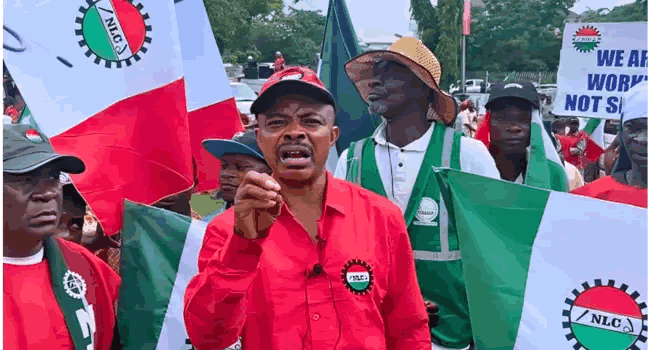Senate President Godswill Akpabio, flanked by a consortium of state governors, responded swiftly to the nationwide strike orchestrated by Nigerian labour unions. An emergency conclave ensued, drawing leaders from the Nigeria Labour Congress (NLC) and the Trade Union Congress (TUC) behind closed doors. This high-stakes assembly aimed to dissect the core grievances fueling the unrest that has brought socioeconomic activities to a grinding halt.
At the epicenter of the dispute lie unresolved issues concerning wage increments and the welfare of workers, casting a shadow over both public and private sectors. Notable figures, including Minister of Labour and Employment Simon Lalong and senior security personnel, were present, pooling their efforts to broker terms conducive to halting the strike and reinstating order.
However, the dialogue, though extensive, hit a stalemate. NLC President Joe Ajaero and TUC President Festus Osifo made it unequivocally clear that tangible governmental actions were indispensable before any contemplation of suspending the strike could be entertained. They emphasized the urgency of tackling systemic challenges, such as exorbitant energy tariffs and inadequate wages, exacerbated by the nation’s economic turbulence.
Labour leaders minced no words in articulating their frustration with what they perceived as governmental maneuvering aimed at sowing discord among the unions, rather than engaging substantively with their core demands. They pressed for concrete measures, including prosecuting perpetrators of attacks on union leaders and implementing agreed-upon wage revisions, as non-negotiable conditions for ending the strike.
Adding to the chorus of concern, the business community, under the banner of the Organized Private Sector of Nigeria (OPSN), voiced apprehensions about the economic fallout of the standoff. They implored both government and labour factions to forge a path to resolution, lest the already fragile Nigerian economy suffer further harm.
As deliberations between the government and labour unions persist, the nation stands on tenterhooks, yearning for a swift resolution that would herald stability and rekindle productivity nationwide.


